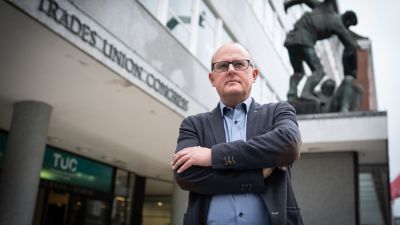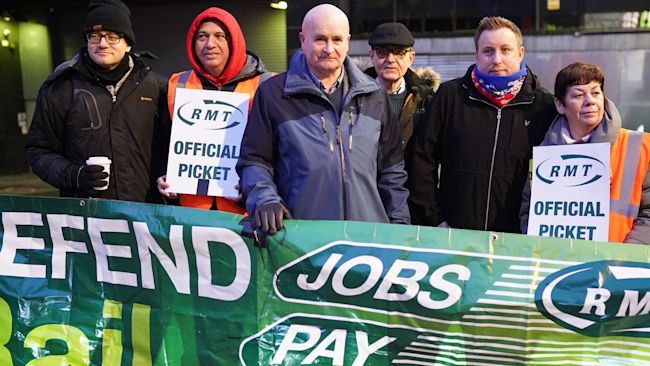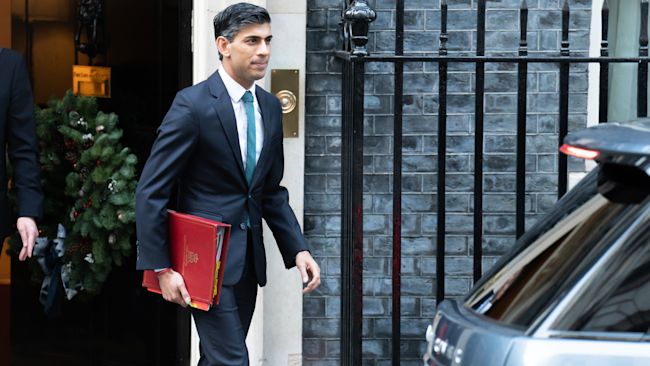Who Is Alex Mashinsky, the Man Behind the Alleged Celsius Crypto Fraud?

FILE PHOTO: Alex Mashinsky, CEO of Celsius Network, gestures as he talks about bitcoin speculation during an interview with Reuters in New York City, U.S. in this still image taken from video, January 5, 2021. Reuters TV via REUTERS/File PhotoREUTERS
By John McCrank and Hannah Lang
(Reuters) - Alex Mashinsky, a co-founder of bankrupt crypto lender Celsius Network who prosecutors allege bilked investors out of billions, is a serial entrepreneur who has portrayed himself as a modern-day Robin Hood.
Mashinsky, 57, fraudulently promoted Celsius as a safe alternative to banks, while concealing that it was losing hundreds of millions of dollars in risky investments, according to a lawsuit filed on Thursday by New York Attorney General Letitia James.
The civil lawsuit seeks to ban Mashinsky from doing business in New York and have him pay damages, restitution and disgorgement.
James' lawsuit is the latest black eye for the crypto sector, which has been rocked by accusations against FTX crypto exchange founder Sam Bankman-Fried. The former mogul, who has been accused of cheating investors and causing billions of dollars in losses, on Tuesday pleaded not guilty.
Mashinsky, a native of Ukraine whose family emigrated to Israel, decided to move to New York after he took a trip to the city in 1988, he told a Forbes podcast.
"I looked around and I'm like, I'm never going back," he said.
Since then, he has founded eight companies, including Arbinet, which went public in 2004, and Transit Wireless, which provides Wi-Fi to the New York City subway.
Mashinsky claims to have created Voice over Internet Protocol (VoIP), a precursor to ride-sharing app Uber, as well as an idea for a cryptocurrency that preceded bitcoin.
Mashinsky became involved in crypto in 2017, when his venture fund Governing Dynamics brought on blockchain company MicroMoney as a strategic partner. He founded Celsius the same year.
In his teens, Mashinsky bought confiscated goods like hairdryers and VCRs from customs auctions at Israel's Ben Gurion Airport and resold them for a profit, according to a 1999 article in the defunct tech publication Industry Standard.
Mashinsky had aspirations at the time to start a business for whole-body transplants: "Give an old person a new body - keep the head, keep the spine, and re-create the rest," he said.
The executive served in the Israeli army from 1984-1987, where he trained as a pilot and served in the Golani infantry units, according to his personal website.
Mashinsky has raised over $1.5 billion for various ventures that generated more than $3 billion when he and other investors cashed out of them, according to his website, which also says he holds more than 50 patents.
"The greatest risk is not taking one," the home page reads.
In hundreds of interviews, blog posts and livestreams as the public face of Celsius, Mashinsky promised its customers that they would receive high returns if they deposited digital assets on his platform, with minimal risk, according to the New York AG's lawsuit.
Neither Mashinsky nor his lawyer immediately responded to requests for comment on Thursday.
Celsius pledged investors would obtain returns of up to 17%, among the highest in the industry. "We take it from the rich," the lawsuit quoted Mashinsky as saying.
By early 2022, it had amassed $20 billion in digital assets from investors. But the company struggled to generate enough revenue to pay the promised yields and moved into much riskier investments, according to the claim.
The company extended hundreds of millions of dollars in uncollateralized loans, and invested hundreds of millions more in unregulated decentralized finance platforms, the lawsuit said.
Mashinsky, who wore t-shirts with slogans such as "banks are not your friends," continued to falsely represent to investors that Celsius was generating high yield through low-risk investments, according to the legal filing.
In an "Ask Mashinsky Anything" YouTube video on June 10, the entrepreneur said "Celsius has billions in liquidity." Two days later, it paused investor withdrawals "in order to stabilize liquidity and operations."
Celsius filed for Chapter 11 protection from creditors last July 13, listing a $1.19 billion deficit on its balance sheet.
(Reporting by John McCrank in New York and Hannah Lang in Washington; Editing by Lananh Nguyen and Matthew Lewis)



:quality(70)/cloudfront-eu-central-1.images.arcpublishing.com/thenational/ELJ3EMZV4PUBQ2G6JTJ5JKSUYQ.jpg)
:quality(70)/cloudfront-eu-central-1.images.arcpublishing.com/thenational/EXPEHHOCYTAXWFHOLZNOON43N4.jpg)
:quality(70)/cloudfront-eu-central-1.images.arcpublishing.com/thenational/LMCZUP7GOBTL2Q3VBO3P5Y3V6U.jpg)
:quality(70)/cloudfront-eu-central-1.images.arcpublishing.com/thenational/WEFY5AYI5EGMS7U5JGWNRB733Q.jpg)
:quality(70)/cloudfront-eu-central-1.images.arcpublishing.com/thenational/CS4MB2CMSWHERWVJ3IKCG6GMRA.jpg)
:quality(70)/cloudfront-eu-central-1.images.arcpublishing.com/thenational/G45UIZDLKFOP5DCFDXQ6R6KNOA.jpg)
:quality(70)/cloudfront-eu-central-1.images.arcpublishing.com/thenational/GMBJ6SKEFORWNQ6MJJ3A47K7CA.jpg)
:quality(70)/cloudfront-eu-central-1.images.arcpublishing.com/thenational/IGG4U4WY6NGOIIMAXMEVF2PPNY.jpg)
:quality(70)/cloudfront-eu-central-1.images.arcpublishing.com/thenational/SRVUBGYUUQEY5ZNBOUCE5C4BK4.jpg)















